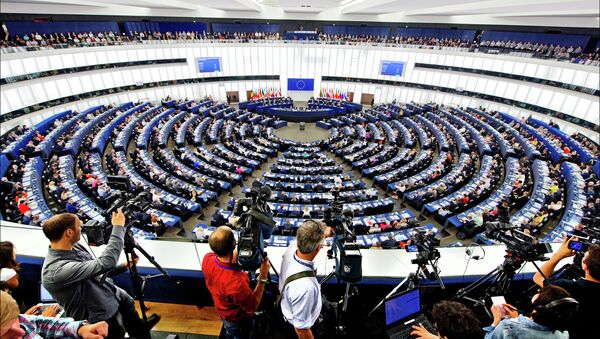WASHINGTON (Sputnik) — On Sunday, White House spokesman Josh Earnest said Western countries' sanctions against Russia over the country’s alleged involvement in the Ukrainian conflict will remain in place at the expense of European economies suffering their aftereffects.
“The US naturally continues to seek to dominate the political dynamic with the EU,” Democracy Institute Director Patrick Basham told Sputnik on Monday.
Basham noted Obama can take a tough stand against Moscow “without suffering domestic opposition due to negative economic consequences in America.”
Basham argued the EU would prefer to see non-economic pressure on Russia because economic sanctions hurt the Union the most.
However, restrictive economic measures are the most convenient way for the United States to pressure Moscow because the cost of such action is borne by Europe.
Binghamton University in New York Professor Emeritus of Sociology James Petras told Sputnik on Monday that businesses in Europe’s largest economy — Germany — will be very displeased with the loss of their export market as a result of extended sanctions on Russia.
“This is a very unpopular measure, but it indicates that Germany’s differences with the US have resolved, and… is willing to swallow the US spying on Germany and forget about an independent foreign policy.”
European export markets have been affected by a series of Western sanctions against Russia, were imposed after Crimea reunified with Russia in March 2014.
Moscow estimates that the total losses Europe would incur in 2015 because of the anti-Russian sanctions could reach up to 50 billion euros ($55 billion).
Over the weekend, the leaders of the Group of Seven (G7) industrialized countries — the United Kingdom, France, Italy, Germany, Japan, Canada and the United States — agreed during the summit in Germany to extend sectorial sanctions against Russia past their original expiration date on July 31, 2015, according to the White House.



